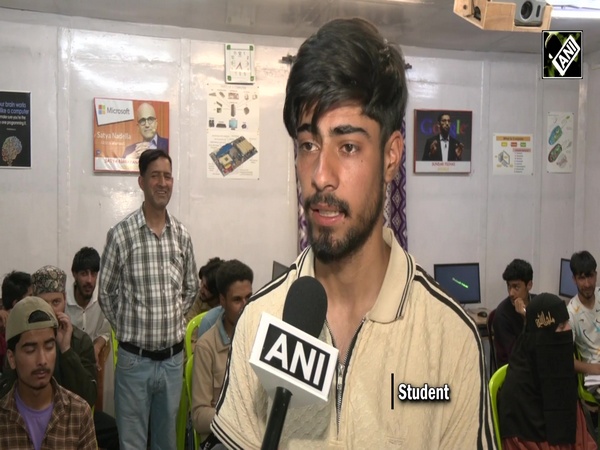Kazakhstan President delivers major address on political reforms, announces snap elections
Sep 02, 2022

Nur-Sultan [Kazakhstan], September 2 : Kazakhstan President delivered Kassym-Jomart Tokayev a major address to the nation on Thursday where he spoke about a number of political reforms for the socio-economic development of the country.
Tokayev announced a series of fundamental and comprehensive political reforms, in continuing the process of decentralising political power in the central Asian country. These measures included the recommendation for seven years limit to the Presidential term and the announcement of snap presidential elections this autumn.
President Tokayev cited the importance of securing a "new democratic mandate" for the "successful implementation of fundamental and comprehensive reforms, on the way to creating a fair Kazakhstan".
As part of this process of ensuring public participation, the Head of State also announced that elections to the Mazhilis (lower house of Parliament) and Maslikhats (local representative body) will be held in the first half of 2023.
Kazak President emphasized that "within the framework of political modernisation, the development of parliamentarism occupies a central place", and that "all institutional changes envisaged by the constitutional reform must be legislatively completed by the end of the year".
Referring to the major political reforms announced in March, which dramatically expanded the space for new political parties, the President hoped that these reforms would "intensify political competition, and contribute to the emergence of a new wave of national deputies."
Addressing another major theme of the New Kazakhstan reforms, President Tokayev also renewed his commitment to strengthening the rule of law in Kazakhstan. He announced that reforms of the judicial system, and particularly of the Supreme Court, would remove "governmental pressure on judges".
Tokayev also spoke of the importance of prioritising competence throughout the judicial system, stressing that all judges "must be highly qualified, honest, and free from corruption."
Focusing on the socio-economic development in Kazakhstan, the Head of State stressed that "we will radically change the relationship between citizens, business, and state, adding that "first and foremost, the state provides everyone with equal opportunities and ensures justice."
He noted that the priorities of the new economic course will be stimulating private entrepreneurial initiative, moving away from state capitalism and excessive state intervention in the economy.
President Tokayev announced new initiatives aimed at increasing the quality of life for all citizens. These included increasing the minimum wage for over 1.8 million citizens, ensuring stable and affordable lending to the real sector, allocation of land to entrepreneurs, and building medical centres in 650 villages within two years.
Turning to the priority of education, a key building block for Kazakhstan's future economic success, President Tokayev announced the establishment of the National Fund for Children.
From January 1, 2024, 50 per cent of the annual investment income of the National Investment Fund will be allocated to special savings accounts for children until they reach the age of 18. This will then be used to purchase housing and receive education when children turn 18, as well as other initiatives. The President also directed the money seized from corrupt officials to the construction of schools.
The Kazakhstan president also touched upon the transit potential of the country. "Kazakhstan is a very important land corridor between Asia and Europe in the current geopolitical situation. We must take full advantage of this opportunity and become a global transportation hub."
Commenting on the tragic January events this year, the President announced an amnesty for protestors facing criminal charges.
Explaining his decision, he said, "Both those who participated in the protests and members of law enforcement agencies are our citizens. Some of those who broke the law have acknowledged their guilt. I think it's best to treat them with forgiveness."
Tokayev noted that the amnesty will not apply to those accused of terrorists, extremists and torture, and that these extremely serious crimes will be considered by the judicial system.
In concluding his address, President Tokayev emphasized that "the creation of a Fair Kazakhstan is just beginning. This course is unwavering and will continue regardless of any circumstances of an internal and external nature."




















